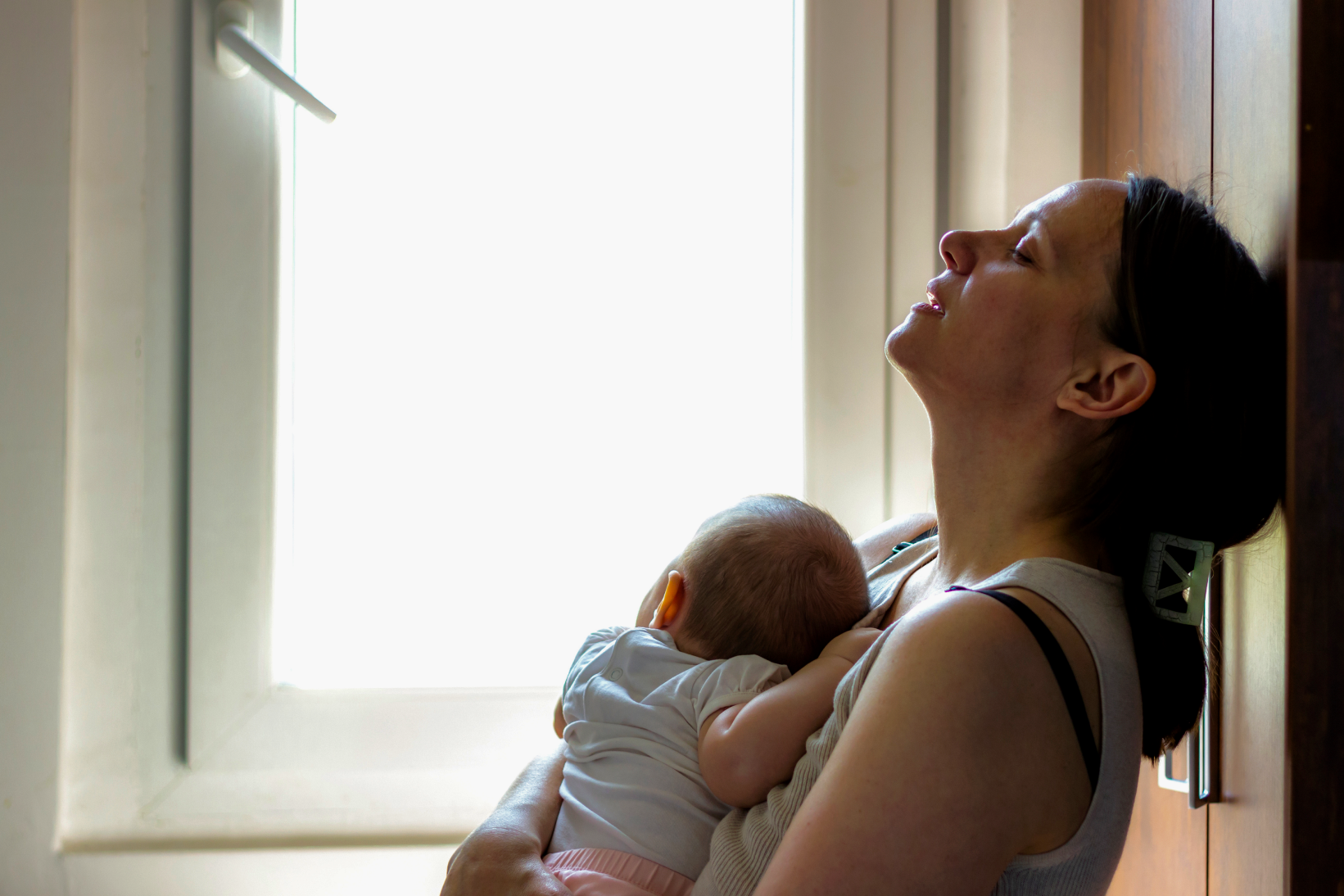
Postpartum mental health is nothing to take lightly. It is important for you and your baby’s health to take these symptoms seriously and seek help if needed.
If you need assistance in finding resources near you, contact Postpartum Support International at 800-944-4773. If you are in crisis, call your local emergency number or the National Suicide Prevention Hotline at 1-800-273-TALK (8255).
Your mental health matters — get started with these 5 FREE classes.
Having a baby can bring a lot of joy, but it also brings a lot of change. And one of the most important things to keep in mind during the postpartum period is how you are feeling mentally and emotionally (not just physically). You’ve likely heard of “The Baby Blues” before or Postpartum Depression and Anxiety, but do you know the signs of each? How about when to call your healthcare provider and ask for help? This information is critical for both you and your partner before your baby is born.
The good news is that postpartum emotional complications can be managed and treated— and if you know what to look for you can catch any signs or symptoms and seek treatment. We asked Tinyhood’s expert Perinatal Mental Health Specialist, Divya Kumar, LICSW, ScM, PMH-C, the instructor that leads our FREE mental health classes, what to look for. Below she lays out the signs, symptoms, and risk factors to consider when it comes to the baby blues and common perinatal mood disorders.
What are perinatal mood disorders?
Perinatal Mood and Anxiety Disorders (PMADs) include a range of disorders that can significantly impact a birthing person’s life and get in the way of her daily functioning.
The signs and symptoms of a PMAD can differ for every woman and may begin during pregnancy or within the first year postpartum. The most common PMADs are depression or anxiety disorders.
Signs of postpartum anxiety?
If you are experiencing postpartum anxiety, some symptoms might include:
Constant worry
Irritability
Feeling like something bad is going to happen
Racing thoughts
Sleep or appetite disturbances
Inability to sit still
Physical symptoms like dizziness, hot flashes, and nausea
Signs of postpartum depression?
- If you’re experiencing postpartum depression, some of the symptoms might include:
- Feeling of sadness, frequent crying, or weepiness
- Lack of interest in the baby or trouble feeling connected to the baby
- Sleep and appetite disturbances
- Lack of motivation to care for yourself
- Feelings of guilt, shame, or hopelessness
- Loss of pleasure from activities usually found enjoyable
- Possible thoughts of harming yourself or the baby
What are “The Baby Blues”?
According to the American Pregnancy Association, approximately 70-80% of women experience some negative feelings or mood swings after having a child. Baby blues are a common state after giving birth and is a less-severe form of postpartum depression that can usually occur within 4-5 days after giving birth.
Symptoms of baby blues include:
- Weepiness or crying for no apparent reason
- Impatience
- Irritability
- Restlessness
- Anxiety
- Fatigue
- Insomnia
- Sadness
- Mood changes
- Poor concentration
How can you tell the difference between Baby Blues and Postpartum Depression?
While the baby blues can have some of the same symptoms as postpartum depression, the feelings are also interspersed with feelings of joy and happiness. The baby blues can often feel like a hormonal rollercoaster with ups and downs; these are transient and usually go away within 2 weeks after birth. The symptoms of postpartum depression are more extensive, severe and long-lasting, and can affect your ability to care for your child.
What are the risk factors that put you at increased risk for perinatal mood disorders?
There are a variety of risk factors that can put you at an increased risk of developing a PMAD. It’s important to note, that just because you have some of these risk factors, it doesn’t mean you will develop a PMAD. These are factors to keep in mind. If you have any of the risk factors below, discuss them with your healthcare provider, such as your PCP, OB, or midwife, so that you can work together to make a care plan, including prevention and treatment options.
- A personal or family history of PMADs
- A personal or family history of depression, anxiety, or other mental health disorders
- A personal history of significant reactions to hormonal changes such as PMS or hormonal contraception
- Major life stressors such as financial stress, racism/oppression, or a recent event such as a move or job loss
- Complications or trauma in pregnancy, birth, or breastfeeding
- Fertility challenges and/or history or pregnancy loss
- Challenging labor and birth circumstances including parents with infants in the NICU, parents of multiples, and teen parents
- Medical conditions, including a thyroid imbalance and any form of diabetes, as well as other trauma history, such as previous sexual trauma or unresolved attachment issues with family of origin
As always, if you are concerned about the way you feel, talk to your healthcare provider. Prompt treatment can help manage symptoms more quickly.
To learn more about what to expect postpartum, as well as how to fully prepare for labor and delivery, check out Tinyhood’s on-demand class Postpartum: Physical Recovery & Emotional Well-Being, as well as our FREE mental health classes.


